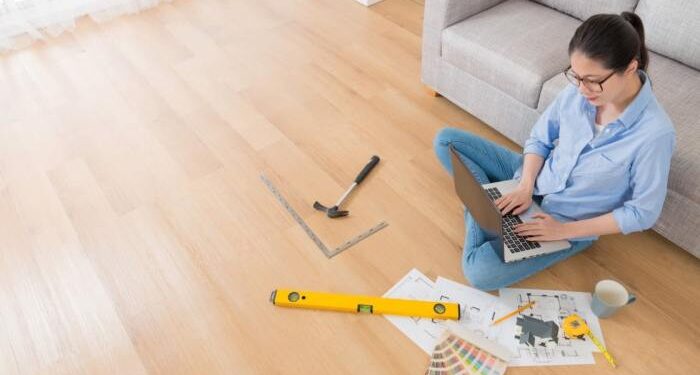Inaugural Home Improvement Mistakes First-Time Owners Should Avoid sets the stage for this enthralling narrative, offering readers a glimpse into a story that is rich in detail and brimming with originality from the outset. Throughout this exploration, we delve into common pitfalls, budgeting strategies, DIY versus professional considerations, meticulous planning, and safety measures that are essential for first-time homeowners embarking on home improvement projects.
Common Mistakes
When first-time homeowners decide to take on home improvement projects, they often make common mistakes that can have costly consequences if not avoided. It is crucial to be aware of these pitfalls to ensure the success of the project and prevent unnecessary expenses down the line.
Underestimating the Budget
One of the most common mistakes first-time homeowners make is underestimating the budget required for a home improvement project. This can lead to running out of funds midway through the project, resulting in unfinished work or compromising on the quality of materials and labor.
Skipping Proper Planning
Another mistake is skipping proper planning before starting the project. Without a detailed plan in place, homeowners may encounter unexpected issues, delays, and additional costs along the way. This lack of preparation can derail the project and lead to frustration.
DIY Overload
While DIY projects can be rewarding, attempting tasks beyond one's skill level is a common mistake. Not recognizing when to hire professionals can result in subpar workmanship, safety hazards, and the need for costly repairs to fix mistakes.
Ignoring Permits and Regulations
Ignoring the need for permits and disregarding building regulations is another mistake that first-time homeowners often make. Failure to comply with legal requirements can lead to fines, delays, and even having to undo completed work.
Budgeting
Setting a realistic budget is crucial before embarking on any home improvement project. It helps you plan and prioritize your expenses, ensuring that you don't overspend or run out of funds midway through the project.
Tips for Creating a Realistic Budget
- Start by researching the average cost of similar home improvement projects in your area. This will give you a baseline to work with.
- Factor in a contingency fund of at least 10-20% of your total budget to account for unexpected expenses that may arise during the project.
- Create a detailed list of all the materials, tools, and labor costs involved in the project to get a comprehensive view of your expenses.
- Consider getting multiple quotes from different contractors or suppliers to compare prices and ensure you are getting the best deal.
Impact of Exceeding the Budget
Exceeding your budget can have significant consequences on the overall project. It may lead to unfinished work, compromised quality, and unnecessary stress. Going over budget can also strain your finances and force you to cut corners or make compromises that could affect the final outcome of the project.
DIY vs. Hiring Professionals
When it comes to home improvement projects, one of the key decisions homeowners face is whether to tackle the task themselves or hire a professional. Both options have their own set of benefits and drawbacks, so it's important to weigh them carefully before making a decision.DIY projects can be a great way to save money and add a personal touch to your home.
However, they also require time, effort, and a certain level of skill. On the other hand, hiring a professional can ensure that the job is done correctly and efficiently, but it can be more expensive.
Instances where hiring a professional is recommended
- Structural work: Any project that involves altering the structural integrity of your home, such as removing walls or installing new support beams, should be left to the professionals. They have the expertise to ensure the work is done safely and up to code.
- Electrical work: Working with electricity can be extremely dangerous if not done correctly. Hiring a licensed electrician for projects like rewiring or installing new outlets is crucial to avoid potential hazards.
- Plumbing projects: Plumbing issues can quickly escalate if not handled properly. Hiring a plumber for tasks like fixing leaks, installing new fixtures, or rerouting pipes can save you from costly repairs down the line.
Tips on how to determine when a project requires professional expertise
- Assess your own skills: Be honest with yourself about your abilities and knowledge. If a project seems beyond your expertise, it's best to hire a professional.
- Consider the complexity of the task: Some projects may appear simple on the surface but can be more complicated than they seem. If in doubt, consult with a professional before proceeding.
- Think about the potential consequences: Mistakes in certain home improvement projects can have serious repercussions, both financially and in terms of safety. It's worth investing in a professional to ensure the job is done right.
Planning and Research

Before embarking on a home improvement project, it is crucial to engage in thorough planning and research to ensure the success of the endeavor. Adequate preparation can help avoid costly mistakes, unnecessary delays, and frustrating setbacks along the way.
Significance of Planning and Research
- Planning allows you to Artikel the scope of the project, set realistic goals, and establish a timeline for completion.
- Research helps you understand the necessary materials, tools, and techniques required for the project.
- By planning and researching in advance, you can anticipate potential challenges and devise solutions proactively.
Resources and Tools for Planning
- Online home improvement forums and websites can provide valuable insights and tips from experienced homeowners and professionals.
- Home improvement apps and software can assist in creating project timelines, budgets, and task lists.
- Consulting with experts or professionals in the field can offer guidance on the best practices for your specific project.
Examples of Inadequate Planning
- Starting a project without a clear budget or timeline can result in overspending and project delays.
- Not researching the necessary permits or regulations can lead to legal issues and fines during the project.
- Failure to account for unexpected challenges or changes in the project scope can cause frustration and setbacks.
Safety Measures
As a first-time homeowner embarking on home improvement projects, prioritizing safety measures is crucial to ensure the well-being of yourself and others involved. Neglecting safety precautions can lead to accidents, injuries, or even property damage. Here are some essential safety measures to consider and recommendations on how to maintain a safe working environment throughout your project.
Proper Personal Protective Equipment (PPE)
Before starting any project, make sure to wear appropriate personal protective equipment (PPE) such as gloves, safety goggles, masks, and sturdy footwear. PPE helps safeguard you from potential hazards like sharp objects, dust, or chemicals.
Safety Training and Education
It is essential to educate yourself on the proper usage of tools and equipment before using them. Take the time to read manuals, watch tutorials, or seek guidance from professionals to avoid accidents caused by misuse or lack of knowledge.
Safe Handling of Tools
Always handle tools with care and follow manufacturer's instructions. Keep tools in good condition, store them properly, and never leave them unattended. Inspect power cords for damage and ensure tools are turned off when not in use.
Clear Work Area and Emergency Plan
Prior to starting any project, clear the work area of clutter and ensure proper lighting. Have an emergency plan in place in case of accidents, such as knowing the location of fire extinguishers, first aid kits, and emergency exits.
Collaboration and Communication
If working with others on a project, communicate effectively and establish clear roles and responsibilities. Ensure everyone is aware of safety protocols and is equipped with the necessary knowledge to carry out tasks safely.
Final Conclusion
In conclusion, navigating the realm of home improvement as a first-time owner can be a challenging yet rewarding experience. By heeding the advice shared here and steering clear of common mistakes, individuals can elevate their projects to new heights of success and fulfillment.
Armed with knowledge and preparedness, every homeowner can transform their living space into a sanctuary of their dreams.
FAQ Corner
What are some common mistakes first-time homeowners make during home improvement projects?
Some common mistakes include underestimating costs, skipping proper planning, and attempting projects beyond skill level.
How important is budgeting when it comes to home improvement projects?
Setting a realistic budget is crucial to avoid financial strain and ensure the project's successful completion.
When should homeowners consider hiring professionals instead of opting for DIY projects?
Hiring professionals is recommended for complex tasks like electrical work or structural modifications that require expertise.
Why is safety a top priority during home improvement projects?
Prioritizing safety measures prevents accidents and ensures a secure working environment for everyone involved in the project.














